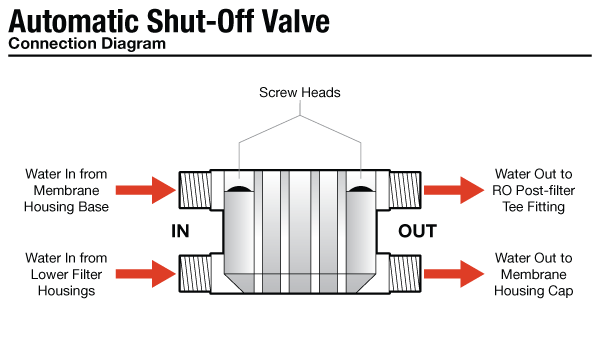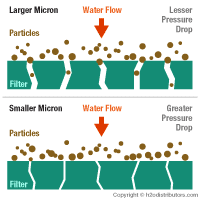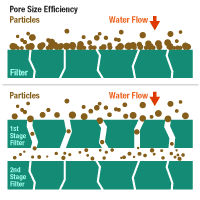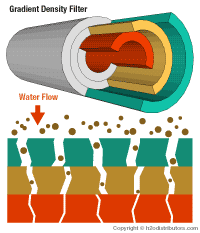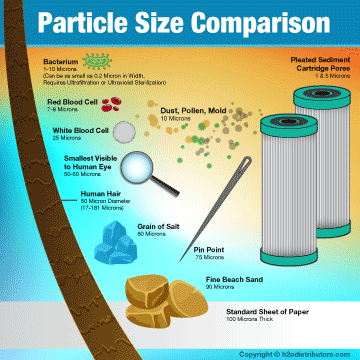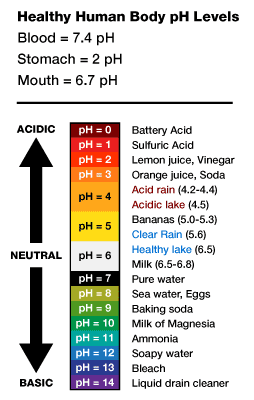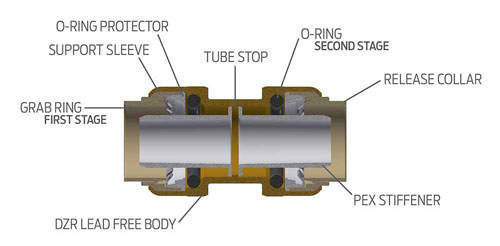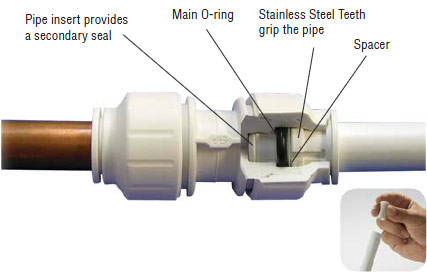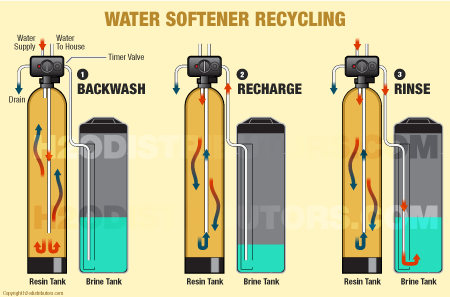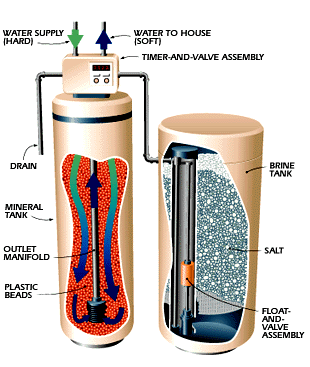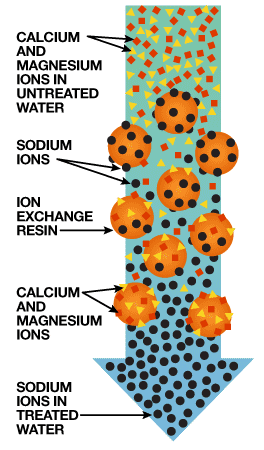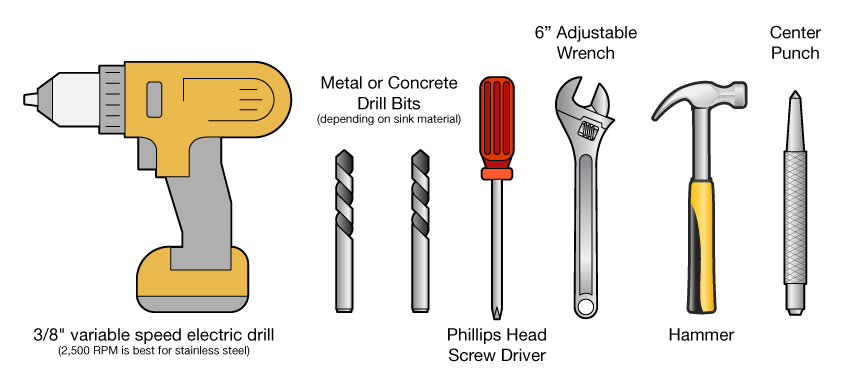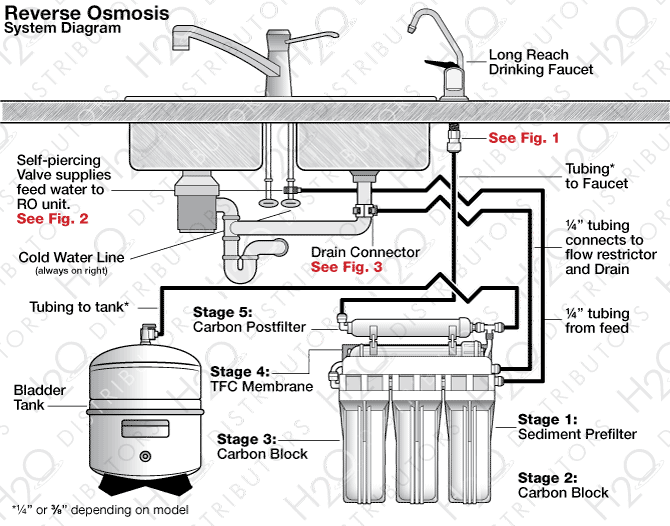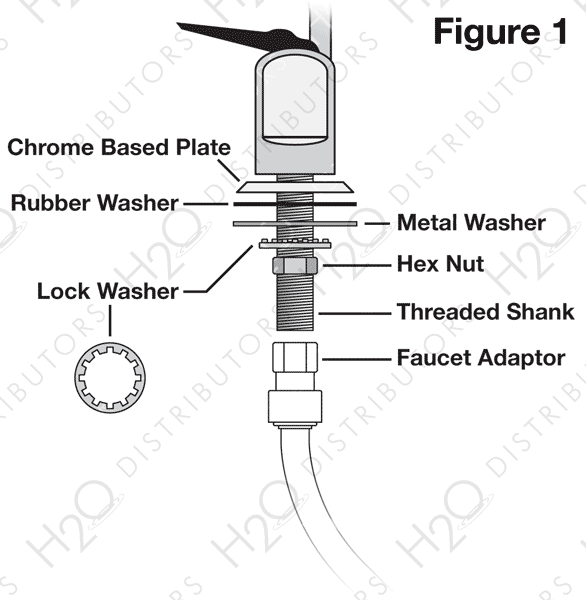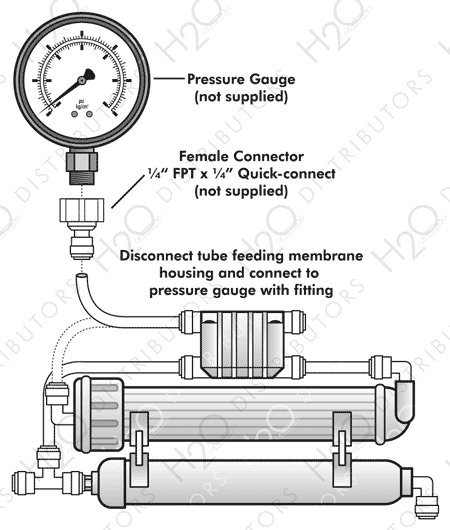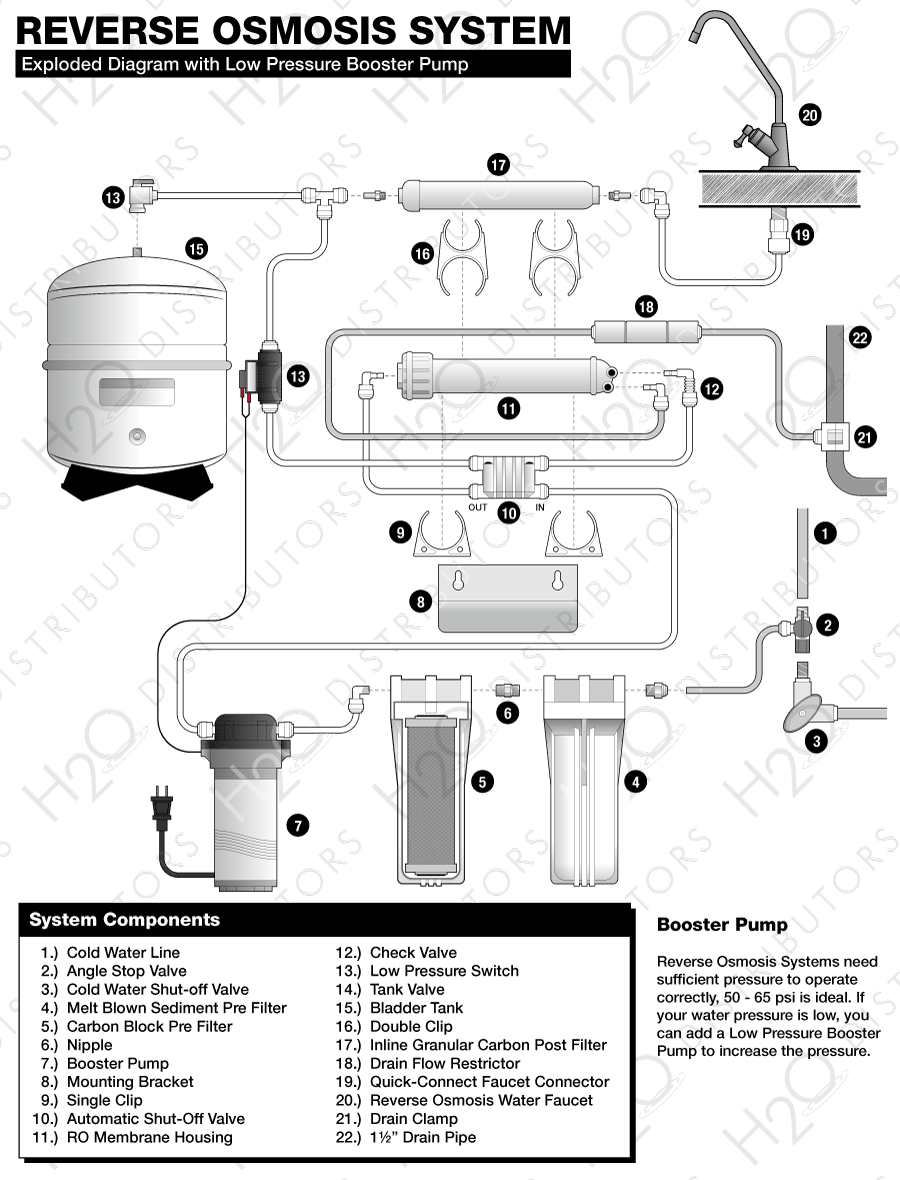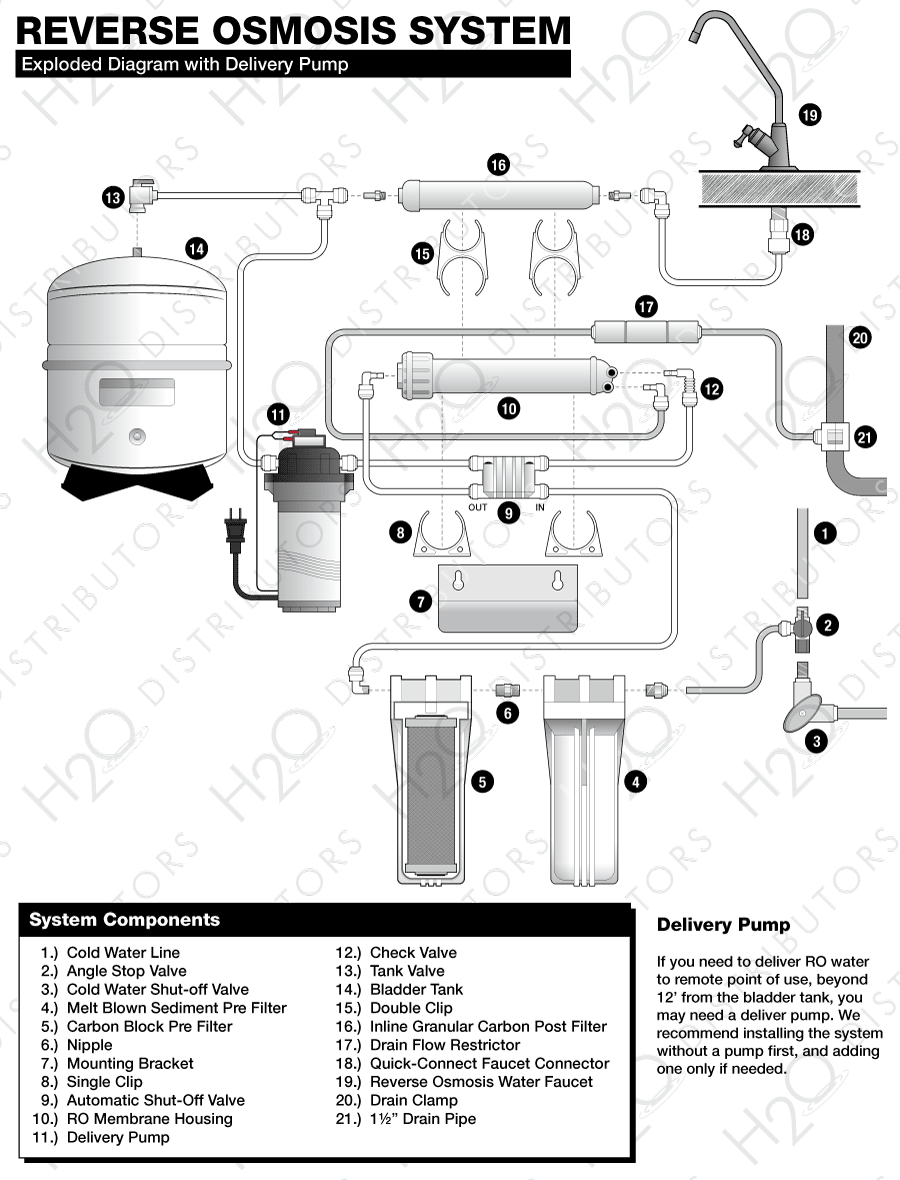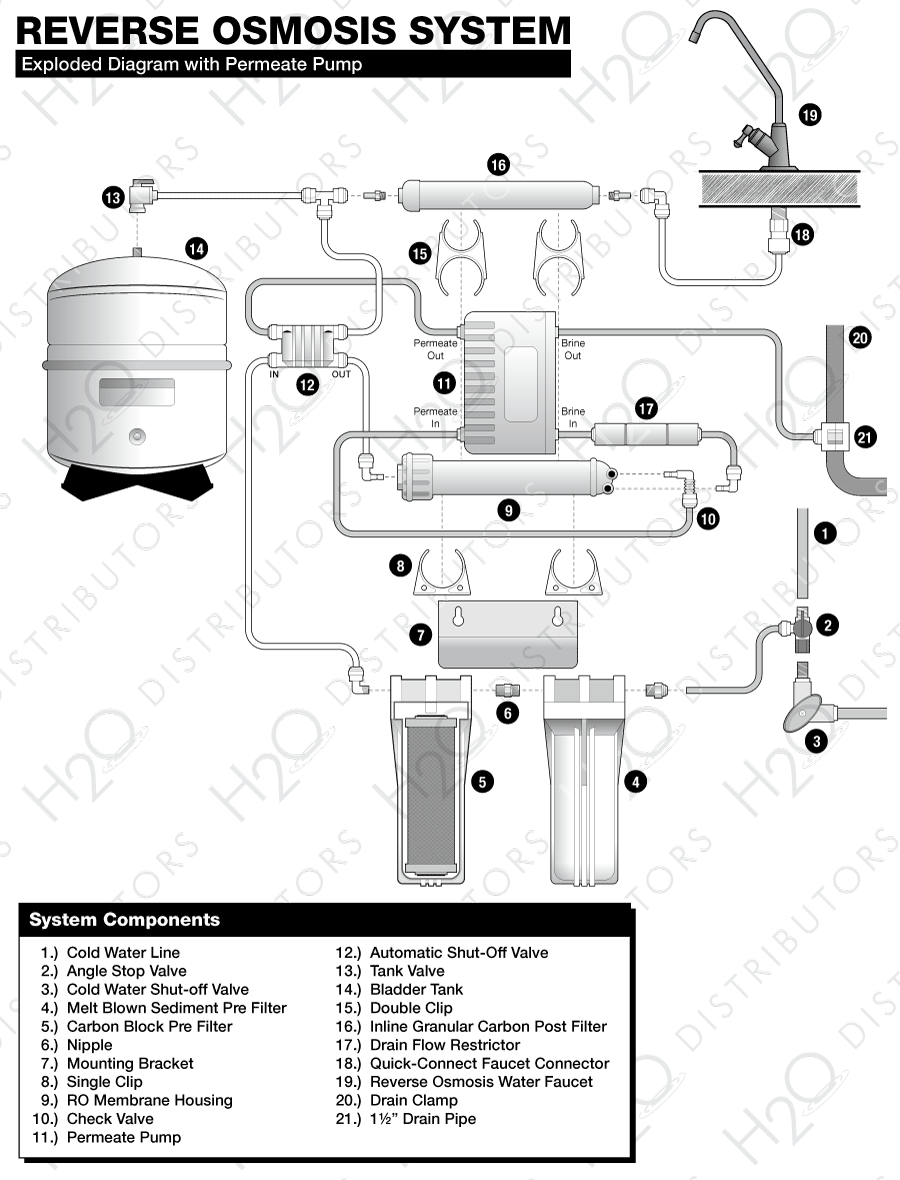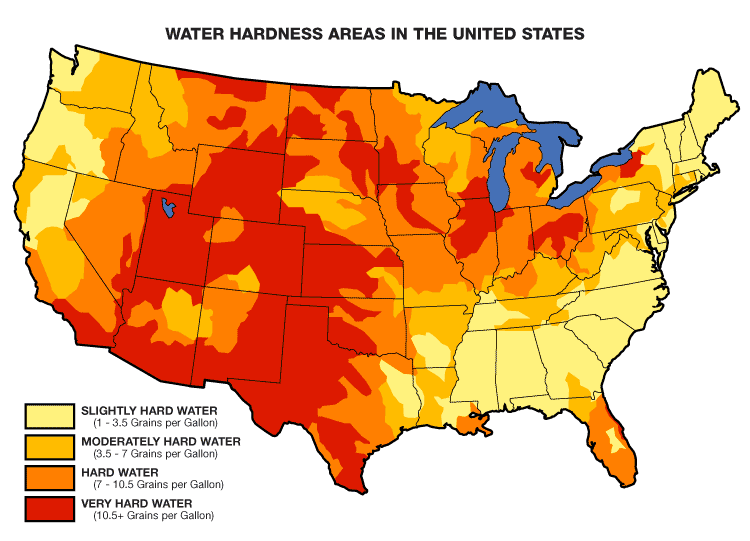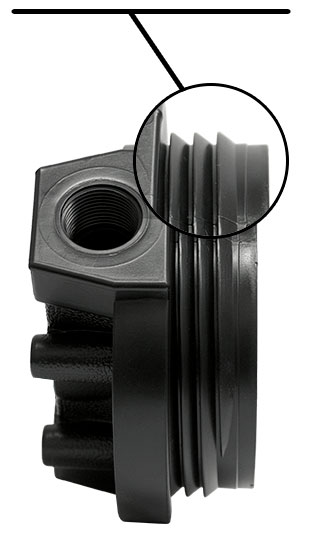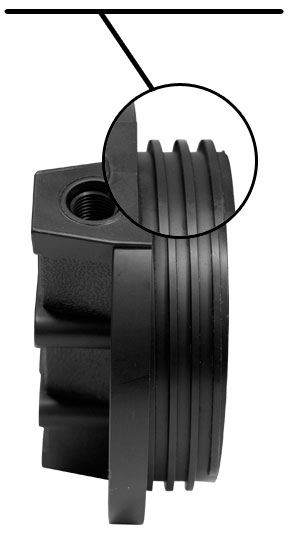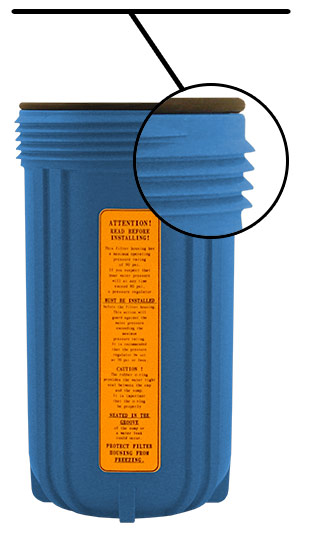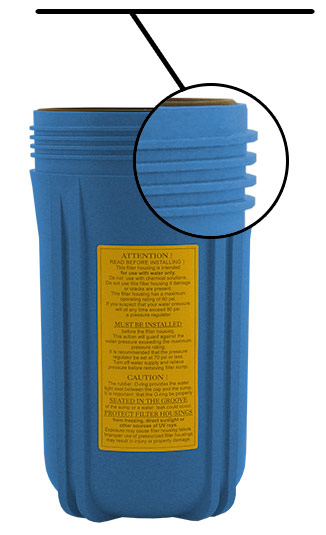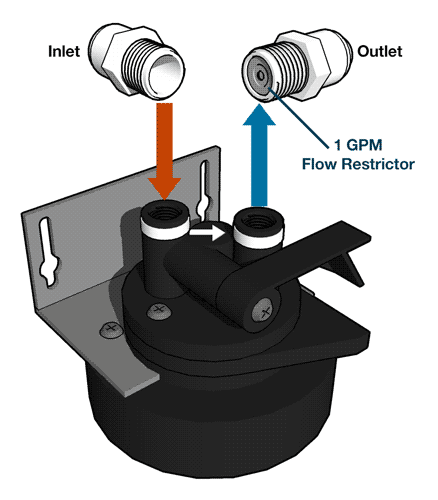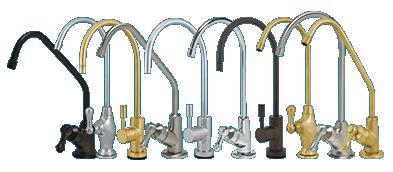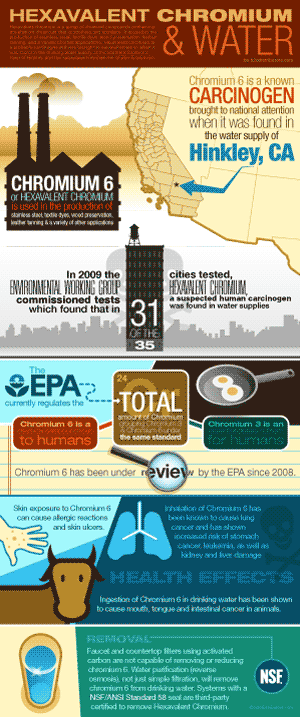
Chromium 6 Facts
Hexavalent chromium is a probable carcinogen and was brought to national attention when it was found in the drinking water supply of the southern California town of Hinkley, and the subsequent involvement of Erin Brockovich.

How to Make a Water Filter
Learn how to make an emergency water filter for disaster situations out of some common items.
This method does work and can keep you heathly if clean potable water or a manufactured water filter system are unobtainable.

Hydraulic Fracturing
The fluids used in the fracking process flow back to the surface, often entering the water table or polluting the drilling area, and sometimes improper disposal of waste water from the wells.
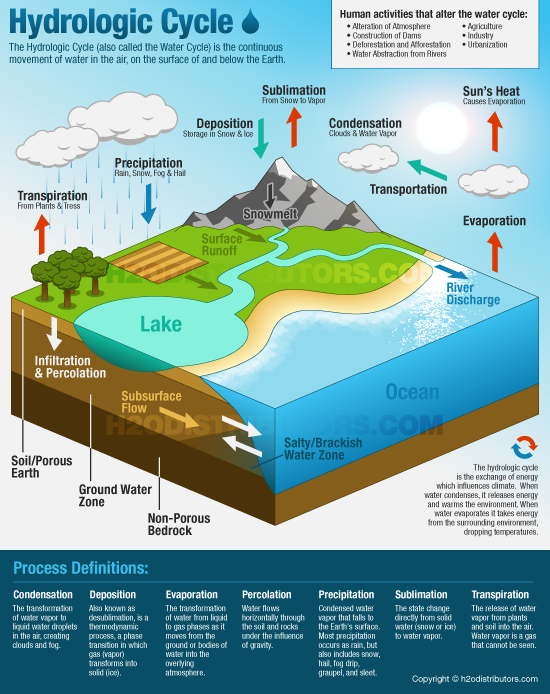
Hydrologic Cycle
The Hydrologic Cycle (also called the Water Cycle) is the continuous movement of water in the air, on the surface of and below the Earth.
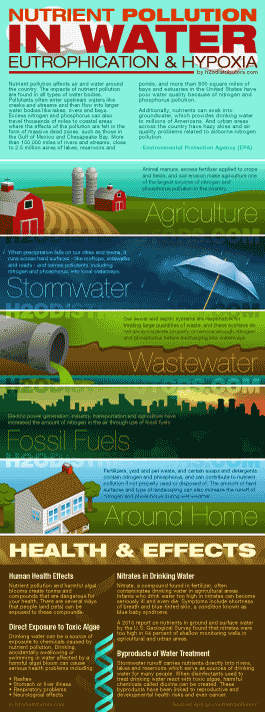
Nutrient Pollution (Nitrites)
Nitrite is used in food production for the curing of meat products due to it inhibiting the growth of bacteria. Unfortunately it can also stimulate the grown of bacteria when introduced in high levels into a body of water.
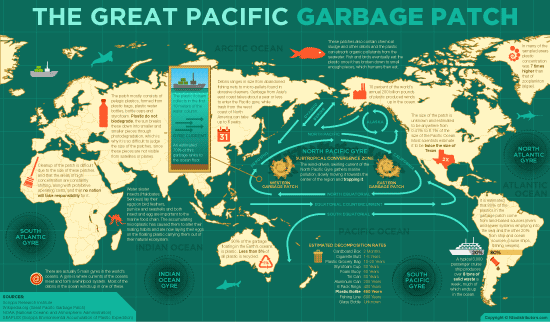
Pacific Garbage Patch
90% of the garbage floating in the Earth’s oceans is plastic and less than 5% of all plastic is recycled.
The patch mostly consists of pelagic plastics, formed from plastic bags, plastic water bottles, bottle caps and styrofoam.

PFAS, PFOS, PFOA
Per- and polyfluoroalkyl substances (PFAS) are a group of man-made chemicals that includes PFOA, PFOS, GenX, and many other chemicals.
Although PFOA and PFOS are no longer manufactured in the United States, they are still produced internationally and can be imported into the United States.

Reverse Osmosis Flow
By applying pressure greater than the osmotic pressure, flow of the water is reversed. Water begins flowing from higher concentration to lower.

Reverse Osmosis Process
This is a simplified and exploded diagram of a typical 4-stage reverse osmosis system. The stages have been numbered and the arrows show the directional flow of the water as it moves through the system.

Filter Cartridge Micron & Surface
A micron is a unit of measurement for how small of particles a filter will catch. The lower the micron size, the tinier the ‘holes’ in the filter cartridge are that allows water to pass through, ranging from 0.1 absolute to 150 microns.
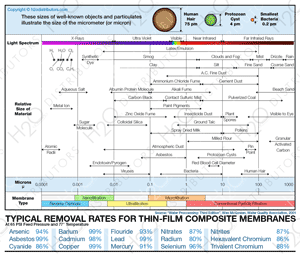
Particle Size Chart
Chart displaying the sizes of well-known objects and particulates, illustrated in the size of the micrometer (micron).

